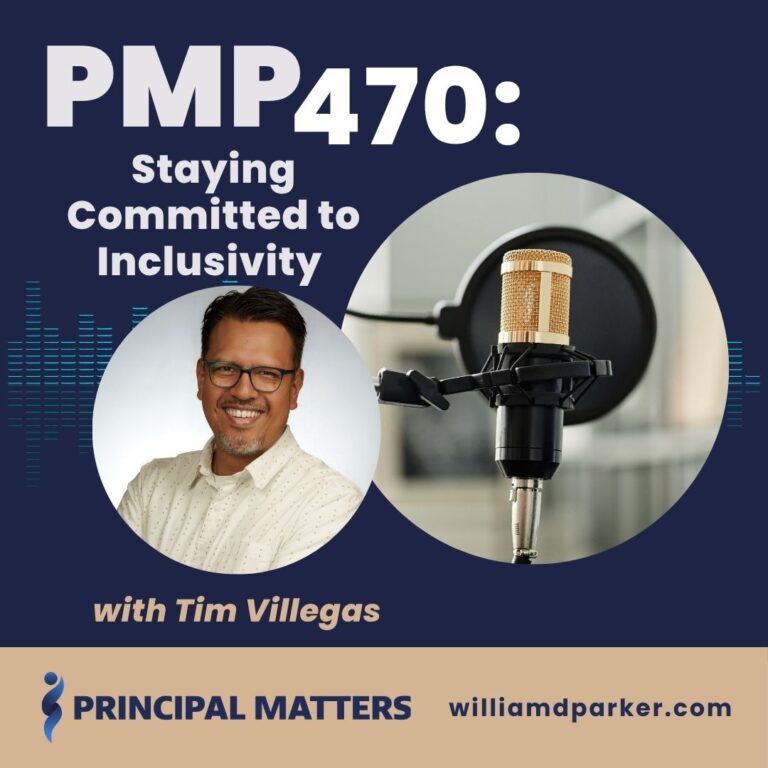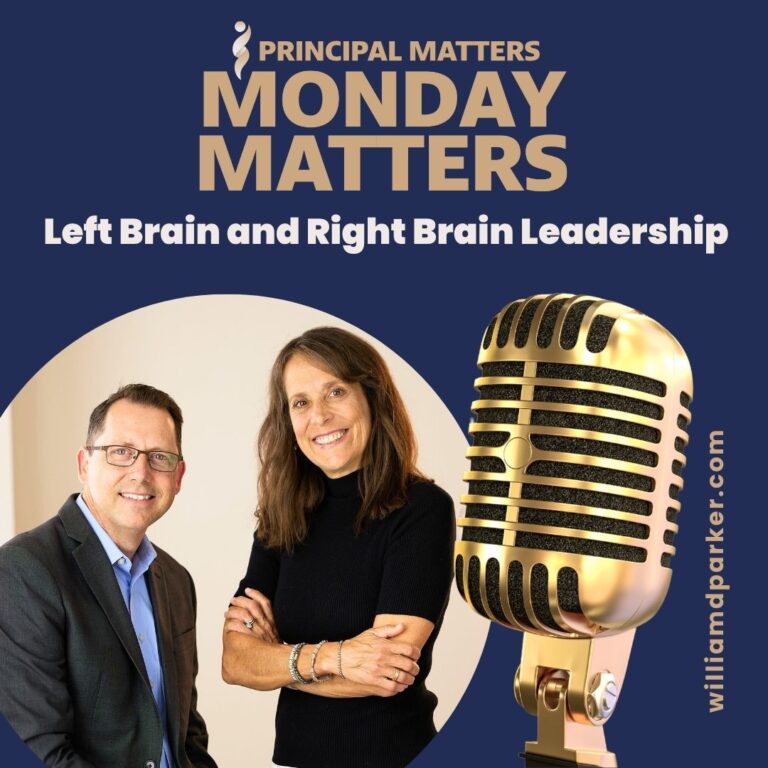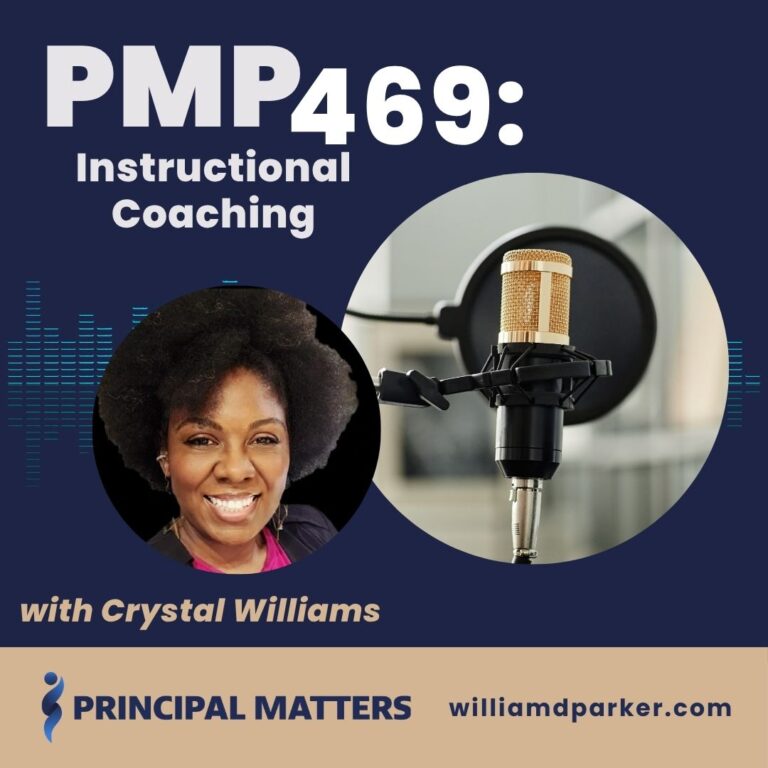Podcast: Play in new window | Download
When I was little, I loved to stand in the garden as my grandparents tilled soil and put out spring tomatoes.

The smell of freshly tilled dirt, the sun beating down on my back, the brush of the ground with hoes and rakes—all these memories come back to me each spring. My grandparents didn’t just garden for hobby. They would can vegetables to use throughout the whole year. To grow that many vegetables, however, they understood the importance of good soil, watering and sufficient sunlight.
I have a question for you about the kind of care you are giving to an important garden in your life. How are currently taking care of your body? If what you reap from a healthy garden requires good soil, seed, and care, how is your body any different if you want strong personal outcomes?
As a school leader, you understand a lot about learning styles, school culture, and organizational leadership. But how much do you think your physical health plays into the outcomes happening at your school?
In 2009, the U.S. Department of Health and Human Services shared findings that student physical activity contributes to strong academic performance. Here were just three takeaways from their findings:
• Physical activity can help youth improve their concentration, memory, and classroom behavior.
• Youth who spend more time in physical education class do not have lower test scores than youth who spend less time in physical education class.
• Elementary school girls who participated in more physical education had better math and reading tests scores than girls who had less time in physical education. (cdc.gov)
As we encourage our young people to consider the effects of physical activity on their own learning, when is the last time you reflected on how your own personal health may be affecting your own leadership?
I’m Going to Die!
Over the years, I have learned some hard lessons about neglecting my own physical health. One day I was standing in a meeting with a group of leaders from across my district. I was the newest assistant principal and the youngest one in the room. As we were waiting for a meeting to begin, every person began to share what physical condition they were currently battling. Each one was taking different medications for ailments. They shared concerns about cholesterol and heart conditions.
As I looked around the room, I began to panic, and I thought, “If I stay in school administration, I’m going to die!”
Of course, I know every job is stressful, and eventually we’re all going to die. But as I began to seriously reflect on my own experience as a young administrator, I realized I had gained twenty pounds. I skipped meals or ate convenience food because school activities were more important than good nutrition. I had stopped exercising because I needed the extra time to catch up on emails or other school projects. Frankly, I was a mess and felt like it most of the time.
I knew I had to make time for better priorities. And I as I did, I began to notice a difference in the way I worked. A commitment to better health, nutrition and exercise began to give me more energy, focus and creativity.
Let me share five ways I have invested in personal health, not as a prescription, but just as an example of how one school administrator has learned to adopt healthier choices into his busy days.
1. Exercise
I have a three-mile route I like to run in my neighborhood. For years, I tried to schedule time at the gym or exercise after school, but it just didn’t work for me. So, when I decided to begin exercising, I bought a pair of running shoes. Instead of waking up early to check emails, I wake up early to run. It’s was the easiest choice for me. I just put on my shoes, stretch, and run. It’s all over in 30 minutes. Even though it has taken me years to develop this habit, it is one of the most important for my physical and mental health.
I have solved a lot of major problems and conflicts during those runs. I’ve prayed a lot during those runs. And I’ve come to see things from the perspective of my wife or others during those runs.
Why is exercise so good for you? Here are a few reminders: First, it’s great for cardio-vascular health. Just like your car needs an oil change, your body needs oxygen flowing through every cell in your body. Also, when you have prolonged physical activity, your body produces an endorphin release – a natural high that increases your energy and even makes exercise something you can enjoy.
2. Nutrition
I love food. In fact, when I was growing up, my mom always kept an extra-large bowl in the kitchen just for me. When we’d have chili, for instance, she always put mine in the largest bowl because she knew I’d want seconds or thirds. I was always active as a kid, so eating a lot didn’t seem to be a problem. But as I began work in education, I was a lot less active.
In addition to exercise, I also had to make better nutrition choices. Most mornings I’ll start the day with oatmeal and a cup of coffee. Lunches are usually something light – a sandwich and fruit. My biggest meals are normally in the evenings and best when we can enjoy them as a family. The older I get, the less meat I am eating.
Let’s be clear. If you decide to fill up on potato chips and soda, then you body will have to digest trans-fats and sugar. You’ll have less energy. Your heart will have to work harder, not smarter. And your brain will have reacted to the intake by a peak in energy and then a plunge in energy.
Frankly, I’m not eating nearly as nutritiously as I need to be, but little habits create long-term results. As a result of better choices, I’ve been able to keep off extra pounds and my cholesterol levels have been good. Here’s another little secret I practice: Whenever someone delivers doughnuts or cake to the office, instead of giving into the temptation, I’ll take one and allow myself one bite and throw the rest of my piece away. I can honestly tell someone thanks for sharing the delicious treat with me, but I also just saved my body hundreds of unnecessary calories to burn.
3. Sleep and rest
I’m putting these two categories together because they are connected. If you don’t set a time each night to unplug from technology and wind down, you will have a hard time sleeping. Yes, there are times when deadlines or activities push you into late hours. But you must create a habit of winding down. For the most part, I start my wind-down time around 9 p.m. each night so I can be asleep before 10 and wake up by 5 or 5:30 each morning.
Also, I make a commitment not to work on Sundays. I know Sundays are historically days of rest of many people of faith. I used to think not working was silly until I realized I was staying engaged in school activities (grading papers, catching up on emails) seven days a week. When I began to protect Sunday as a day to worship, to rest and to be with family, I found myself prioritizing work better to finish important projects before Sunday. Try it and I believe you’ll find more creativity after giving yourself a whole day to break from work projects.
4. Moderation
I’m going to be blunt here. If you enjoy alcohol, coffee, sweets, or meat, do so with moderation. First, you will feel better when you do. Second, you will most likely behave better too. If you’re like me, you probably don’t always enjoy being around others when their intake of anything becomes an unhealthy obsession. So, keep that in mind. And yes, the area where I struggle most is definitely with coffee – and I’m still working on it.
5. Inspiration
If you think about how your body is designed for movement, it only makes sense that if you are engaged in moving, heart-pumping, endorphin releasing activity – when you take time for good nutrition and rest — your mindset and your brain benefit as a result. You will begin to think more clearly, and that is where creativity and inspiration have room to grow. For some people being active means a long hike or walk. For others, it is dancing. For some of my friends, it means hunting and fishing. Whatever activity it takes, take time each day to practice good habits for your body so you can enjoy the benefits that happen a result. Your mind is better conditioned for sharp thinking when your body is experiencing good health.
Let’s Wrap This Up
Recently, I gathered some fresh lettuce from a raised bed in my backyard that my wife and I shared for lunch. The vegetables we grow are not nearly as bountiful as my grandparents’ gardens. But the same truths apply to both: Good soil, watering and sufficient sunlight can produce yummy produce.
As you think about the ways you are tending your own body, I don’t know where you are in the journey. You may already be active with healthy choices. Or you may be discouraged and battling health challenges. Whatever your situation, be encouraged to take whatever steps work for you. And know that that each positive step you take can help begin movement toward healthier results.
Now It’s Your Turn
Here are some questions for self-inventory:
1. How is your nutrition – what goes into your body – affecting your concentration and energy?
2. How is your physical activity – or lack of it – influencing the way you feel about tackling big projects?
3. Are you allowing sleep and rest to influence your levels of patience or endurance?
4. In what ways are you letting moderation – or lack of it – affect your relationships?
5. Does your overall physical health lead to more inspiration or tend toward more anxiety?
Now what is one step you can take this week toward healthier choices for your body?
The way you treat yourself will affect the way you treat others. So, do yourself and others a favor, and keep taking care of your body. As you do, you will find more energy and creativity for doing what matters.
Sign-Up For Free Updates and Ebook
When you enter your email address below, you will automatically receive my newest posts and a free Ebook, 8 Hats: Essential Roles for School Leaders. Let’s keep learning together!
Subscribe for free weekly updates and receive free e-book!
(function($) {window.fnames = new Array(); window.ftypes = new Array();fnames[0]=’EMAIL’;ftypes[0]=’email’;fnames[1]=’FNAME’;ftypes[1]=’text’;fnames[2]=’LNAME’;ftypes[2]=’text’;}(jQuery));var $mcj = jQuery.noConflict(true);
Principal Matters–The Book!

School leaders are very busy, so each of the twenty-four chapters is designed as a quick-read and followed with take-action questions for follow-up or reflection. If you want practical ideas on understanding your purpose, managing school teams, dealing with challenges, and leading with courage, action, motivation, and teamwork, go HERE to pick up a copy for you or your team.
Messaging Matters

Harness the power of messaging to create a culture of acknowledgment, respect, and celebration. Written specially for leaders, this title is divided into three parts, helping readers to maximize their role as chief communicators with students, teachers, and parents and community. Each chapter includes suggestions for using digital tools to enhance messaging and ends with reflection questions and practical next steps.




